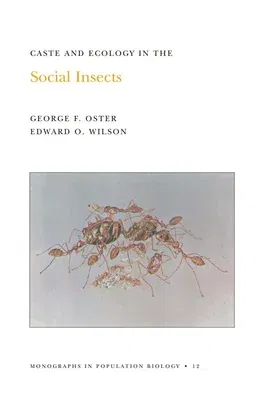George F Oster
(Author)Caste and Ecology in the Social Insects. (Mpb-12), Volume 12Paperback, 21 January 1979

Qty
1
Turbo
Ships in 2 - 3 days
In Stock
Free Delivery
Cash on Delivery
15 Days
Free Returns
Secure Checkout

Part of Series
Monographs in Population Biology
Part of Series
Monographs in Population Biology, 91
Print Length
372 pages
Language
English
Publisher
Princeton University Press
Date Published
21 Jan 1979
ISBN-10
0691023611
ISBN-13
9780691023618
Description
Product Details
Authors:
Book Format:
Paperback
Country of Origin:
US
Date Published:
21 January 1979
Dimensions:
21.39 x
13.82 x
2.21 cm
Genre:
Ecology
ISBN-10:
0691023611
ISBN-13:
9780691023618
Language:
English
Location:
Princeton
Pages:
372
Publisher:
Weight:
439.98 gm